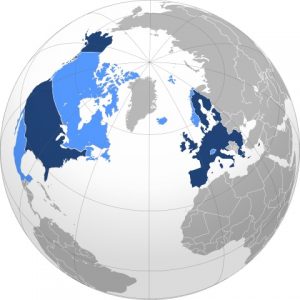Worlds Apart

Europeans approach personal privacy differently than North Americans. In Europe, there are two laws that protect individual citizens over collective society: the right to be forgotten and the right to disconnect.
To understand these laws, and how they uniquely impact the digital identities of Europeans, it is necessary to examine the disparate legal frameworks of Europe and North America. Some laws that exist in Europe, cannot exist in North America because they infringe upon the freedom of expression that is enshrined in the Canadian and American constitutions.
“Europeans think of the right to privacy as a fundamental human right, in the way that we think of freedom of expression or the right to counsel.” Jennifer Granick, the Director of Civil Liberties at the Stanford Center for Internet and Society
When it comes to digital identity and online privacy, the ideological differences between North Americans and Europeans are rooted in the law. Where Europe promotes the privacy of the individual as a “fundamental human right,” North America favours the collective benefits provided by freedom of speech.
The Right to be Forgotten
Put into practice in 2006, this law allows Europeans to request personal information be removed from the internet and no longer be accessible by search engines. Examples of people who have requested to have information deleted include: a man who had been misidentified in an incriminating video; a doctor who had received negative reviews; and an actor who had an affair with an underage girl.
 As of May 2016, Google has delisted by request over 600,000 items across Europe. But Google has rejected a French court order to apply the right to be forgotten beyond Europe, and is currently engaged in a legal battle in France’s highest court. If you’re a citizen of the European Union, you have the right to request that information about you be removed from the internet permanently. Whether or not the process works, is another question.
As of May 2016, Google has delisted by request over 600,000 items across Europe. But Google has rejected a French court order to apply the right to be forgotten beyond Europe, and is currently engaged in a legal battle in France’s highest court. If you’re a citizen of the European Union, you have the right to request that information about you be removed from the internet permanently. Whether or not the process works, is another question.
Within North America, there have been many battles to remove potentially damaging information from the internet that have been blocked by the freedom of expression. One recourse that individuals have, and legal experts use, is copyright. In North America, one of the only ways to have images or videos removed from the internet is to make a copyright claim against them. Google handles around 23 million of these claims each month.
The Right to Disconnect
Part of a Bill that just passed in the French lower parliamentary house, the right to disconnect mandates companies of over fifty employees to adopt a charter that indicates the hours during evenings and weekends when employees cannot be contacted.
“The development of information and communication technologies, if badly managed or regulated, can have an impact on the health of workers. Among them, the burden of work and the informational overburden, the blurring of the borders between private life and professional life, are risks associated with the usage of digital technology.” States Article 25 of the Bill
Although this is only a small measure within a largely unpopular bill, it will further ensure personal privacy for French citizens. Communications between employers and employees within North America are protected under freedom of expression, no matter when they take place or how frequently.
What do you think?
Although freedom of expression is in conflict with these two European laws, it has accomplished some very important things for North Americans. Would you rather have your individual rights protected through measures like the right to be forgotten and the right to disconnect? Or do you prefer the collective benefits of freedom of speech?


Hi Bryan,
Interesting and thought provoking post! I think there may be defamation laws that come into play when one’s character is defaced online – these existing laws could be leveraged to have troubling content removed. Personally, I think it would be a slippery slope to rely on search engines to make the complex judgement calls necessary to strike a reasonable balance between privacy and freedom of expression. Thanks for raising the questions.